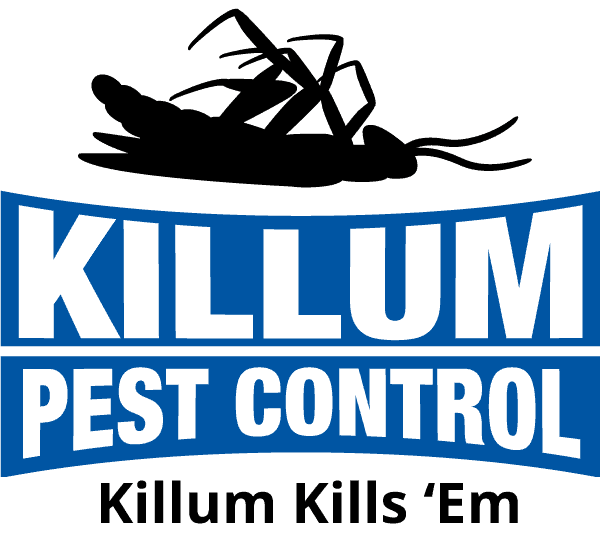Running a business in Texas comes with its own set of challenges, and dealing with pests should not be one of them. From rodents to insects, pests can cause a multitude of problems that affect not only the physical space but also the reputation and bottom line of a business.
Texas businesses, whether they’re retail stores, restaurants, or office buildings, need to stay on top of pest control. Pests can show up at any time, disrupting operations and making customers uncomfortable. Worse, some pests can carry diseases or damage property, leading to costly repairs and potential health code violations.
By investing in regular pest control, businesses can avoid these issues and maintain a clean, safe environment for everyone. It’s about being proactive rather than reactive. Regular pest control helps identify potential problems before they become major issues, saving time, money, and hassle. Let’s delve into why regular pest control is essential for Texas businesses and how it can keep operations running smoothly.
Pests Commonly Found in Texas Businesses
Texas businesses often face a variety of pests. Knowing which pests to watch for can help take action quickly and effectively.
1. Rodents: Mice and rats are a major issue for many businesses. They can chew through wires, damage property, and contaminate areas with their droppings. They thrive in places with easy access to food and shelter, like restaurants and warehouses.
2. Cockroaches: These pests are common in food-related businesses but can invade any indoor space. They spread diseases and cause allergic reactions. Cockroaches are particularly difficult to control without professional help.
3. Termites: Termites can cause serious structural damage to buildings. They are often found in businesses with wooden structures and can go unnoticed until significant damage is done.
4. Ants: While ants may seem harmless, they can be a big nuisance. Certain types, like carpenter ants, can cause damage to wooden structures. Ants are attracted to food and sugar, making them common in kitchens and break rooms.
5. Flies: Flies are common in businesses that handle food. Besides being annoying, they can carry bacteria and contaminate foods.
Identifying these pests early is important for keeping them under control. Regular inspections and monitoring can help catch infestations before they become a major problem.
Impact of Pests on Business Operations
Pests can have a significant negative impact on business operations, affecting everything from productivity to reputation.
1. Health Risks: Pests like rodents and cockroaches carry diseases that can be transferred to humans. This poses serious health risks to employees and customers. Businesses dealing with food must be especially careful to avoid contamination.
2. Damage to Property: Termites, rodents, and carpenter ants can cause extensive damage to a building’s structure. Repairs can be costly and disruptive to daily operations.
3. Reputation Damage: The presence of pests can severely impact a business’s reputation. Customers who see pests or signs of infestation may choose to take their business elsewhere. Negative reviews can spread quickly, harming the business’s image.
4. Financial Losses: Pests can cause financial losses in several ways. Damaged goods, repairs, loss of customers, and potential lawsuits from health violations contribute to financial strain.
5. Employee Productivity: A pest-infested workplace is uncomfortable and can lower employee morale and productivity. Workers may be distracted or even refuse to work in pest-ridden conditions.
Addressing pest issues promptly is crucial for minimizing these impacts. Regular pest control helps maintain a safe and pleasant environment, protecting both the business and its employees.
Effective Pest Control Strategies for Businesses
To keep pests at bay, businesses need an effective pest control plan. Here are some key strategies that can help:
1. Regular Inspections: Schedule regular inspections to check for signs of pests. Look for droppings, nests, gnaw marks, and other indicators of infestation. Early detection is crucial.
2. Proper Waste Management: Ensure that garbage is disposed of properly and containers are sealed tightly. Pests are attracted to food waste, so keeping trash areas clean is vital.
3. Seal Entry Points: Inspect the building for cracks, gaps, and holes. Seal them to prevent pests from entering. Pay special attention to doors, windows, and utility lines.
4. Maintain Cleanliness: Keep all areas of the business clean, especially kitchens and break rooms. Regular cleaning reduces the chances of attracting pests.
5. Regular Maintenance: Fix leaks and address moisture issues promptly. Pests, like cockroaches, thrive in damp environments. Regular maintenance can prevent these conditions.
6. Install Traps and Baits: Use traps and baits in strategic locations to catch and monitor pest activity. This can help control the population and identify areas that need more attention.
7. Employee Training: Educate employees about the importance of pest control and encourage them to report any signs of pests immediately. Everyone needs to participate in keeping the workplace pest-free.
By following these strategies, businesses can significantly reduce the risk of pest infestations and maintain a healthy environment.
Signs It’s Time to Call Professional Pest Control Services
Sometimes, despite our best efforts, pests still find a way in. Here are some signs that it’s time to call in the professionals:
1. Frequent Sightings: If employees or customers frequently spot pests, it’s a clear sign of an infestation. Professional help is needed to address the issue thoroughly.
2. Unusual Noises: Scratching, scurrying, or other strange noises, especially at night, can indicate the presence of pests like rodents. A professional inspection can pinpoint the source.
3. Persistent Odors: Musty or foul smells might come from pest nests or droppings. If these odors persist, it’s time to get professional help.
4. Structural Damage: Visible damage to the building, such as gnaw marks, holes, or chewed wires, indicates serious pest problems that need expert intervention.
5. Health Code Violations: Any sign of pests that could result in a health code violation or has already caused one, requires immediate professional assistance.
6. Failed DIY Efforts: If DIY pest control methods aren’t working, it’s better to call professionals who have the right tools and expertise.
Recognizing these signs early can save a lot of trouble and expense. Professionals can provide a more comprehensive solution to ensure pests are gone for good.
Conclusion
Keeping a business free of pests in Texas is essential for maintaining health, safety, and reputation. Regular pest control measures help prevent infestations and protect the business from the many problems pests can cause. Businesses can stay ahead of potential issues by identifying common pests, understanding their impact, and implementing effective control strategies.
However, there are times when professional pest control is necessary. If pests persist despite our efforts, it’s important to call in experts who can handle the problem efficiently and thoroughly.
Don’t let pests jeopardize your business. To ensure a pest-free environment, contact Killum Pest Control, Inc. today. We offer comprehensive Texas pest control services tailored to your business needs. Protect your property, employees, and customers with our expert services. Call us now to schedule an inspection.





